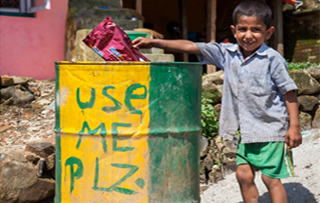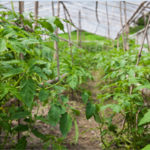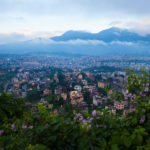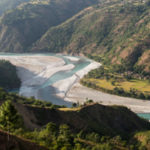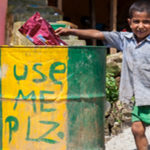Current Situation
- An average household generated 170 grams of solid waste per day.
- 37% of municipal solid waste in Nepal is disposed in landfills.
Waste management is a critical concern in Nepal, and can have profound implications for public health. Many cities in Nepal are covered in piles of plastic and organic wastes. Municipalities are solely in charge of the collection, transportation, treatment and dumping of solid waste. However, many are not well equipped for the safe disposal of waste products. With limited rubbish removal facilities, and absence of significant recycling industry, waste is often dumped on roads and in rivers. The waste collected is deposited at crude dumping sites, where it is left untreated regardless of the public health risk it presents.
Project Goal
VIN aims to prevent and control water, land and air pollution via proper management of waste at the household level. By 2030, we hope 60% of the people are practising environmentally friendly habits and reducing all forms of pollution.
SDG 6 focuses on improving water quality by reducing pollution, eliminating dumping, minimizing release of hazardous chemicals, improving wastewater treatment and increasing recycling and safe reuse globally.
Project Description
VIN’s Waste Management project focuses its efforts in rural communities to help people establish best practices for waste management and develop effective and sustainable approaches to keep the community clean. We encourage every household in our community to segregate biodegradable and non-biodegradable waste products, and to convert biodegradable waste into organic matter to be used in farming. We promote the idea of reduce, reuse and recycle. Under this project VIN conducts workshops and training to individuals on various topics such as composting, sanitation, 3Rs, waste segregation etc.
As of 2020, VIN’s Waste Management Project has been able facilitate 19,516 people in back warded communities of Nepal.
Gallery
Research/Reports
To know more about Waste Management in Nepal, please visit the reports below:
Solid Waste Management in Nepal – By Asian Development Bank
Solid Waste Management in the city of Kathmandu, Nepal – By Christina Anderzén & Veronica Blees

